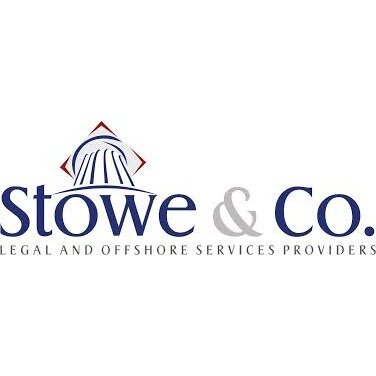Best Energy Regulatory Law Lawyers in Roseau
Share your needs with us, get contacted by law firms.
Free. Takes 2 min.
List of the best lawyers in Roseau, Dominica
About Energy Regulatory Law in Roseau, Dominica
Energy Regulatory Law in Roseau, Dominica governs the generation, distribution, transmission, and sale of energy within the nation. This area of law ensures that energy resources are developed, managed, and utilized in compliance with both national standards and international commitments related to sustainability, environmental protection, and fair market competition. Dominica places particular focus on renewable energy due to its geothermal, solar, and hydroelectric potential. Regulatory frameworks oversee traditional fossil fuels, but in recent years there has been a significant push towards clean and renewable sources of energy. The purpose of Energy Regulatory Law is to create a stable, transparent, and equitable environment for energy providers, consumers, and investors while supporting Dominica’s long-term energy independence and environmental goals.
Why You May Need a Lawyer
There are several situations where legal advice or representation becomes essential in the field of Energy Regulatory Law in Roseau, Dominica. Some common reasons include:
- Negotiating and drafting energy supply or purchase agreements
- Securing permits or licenses for energy generation or distribution projects
- Dealing with regulatory compliance, audits, or disputes with government bodies
- Resolving conflicts between energy providers and consumers
- Advising on renewable energy incentives and navigating government grant applications
- Understanding tariffs, rate-setting, and pricing regulations
- Addressing land use rights in relation to energy infrastructure projects
- Tackling environmental impact assessments and related obligations
- Managing the legal aspects of investments in energy ventures
Having a lawyer can help you interpret complex regulations, protect your rights, and ensure compliance with the various rules set by authorities.
Local Laws Overview
Dominica’s energy sector is mainly regulated by the Electricity Supply Act and overseen by the Independent Regulatory Commission (IRC). The legislation provides the legal framework for electricity supply, including licensing requirements, rate regulation, and consumer protection. The Act emphasizes reliability and the integration of renewable energy. Environmental regulations also play an important role, especially for new projects requiring environmental impact assessments. The government encourages renewable energy development through specific policies and incentives. Local laws also address electrical safety, quality of service, and dispute resolution mechanisms between stakeholders.
Key legal areas to be aware of include:
- Licensing and permits for energy projects
- Grid access rules and connection requirements
- Tariff and pricing regulations
- Consumer protection standards
- Environmental compliance and sustainability mandates
- Investment regulations affecting foreign and local investors
Frequently Asked Questions
What government agency is responsible for regulating energy in Roseau, Dominica?
The main agency is the Independent Regulatory Commission (IRC), which oversees electricity supply, licensing, consumer rights, and dispute resolution in the energy sector.
Can private entities invest in energy projects in Dominica?
Yes, both local and foreign private entities can invest in energy projects, subject to obtaining the necessary licenses and complying with local investment laws.
What are the licensing requirements for energy suppliers?
All energy suppliers must obtain a license from the IRC, demonstrating compliance with technical, safety, and financial regulations. The application process includes technical evaluations and public interest considerations.
How are electricity prices regulated?
Electricity tariffs are set and regulated by the IRC to ensure fairness and transparency for both suppliers and consumers. Any changes to pricing usually require regulatory approval.
Are there legal incentives for renewable energy projects?
Yes, the government offers various incentives such as tax breaks, grants, and streamlined permitting for projects focused on geothermal, solar, or hydroelectric energy, subject to meeting specific criteria.
What is required for environmental compliance in energy projects?
Most large-scale or impactful projects require an Environmental Impact Assessment (EIA) and ongoing compliance with environmental protection regulations as set out by the Environmental Coordinating Unit (ECU).
How are consumer complaints handled?
The IRC has mechanisms in place to handle consumer complaints regarding billing, service quality, or disputes with energy providers. Consumers can file complaints directly with the IRC for investigation and resolution.
Do grid connection rules apply to small-scale renewable producers?
Yes, even small-scale producers must comply with specific grid connection standards and safety rules. Customized arrangements can often be negotiated with the national utility and the regulator.
How does the law address energy efficiency?
While there are some policies promoting energy efficiency, these are still developing. Current regulations require certain minimum standards, especially for public sector projects and large new developments.
What penalties apply to unlicensed energy operations?
Operating an energy project without the necessary licenses can result in fines, shutdown orders, and possible prosecution, as enforced by the IRC and supporting law enforcement agencies.
Additional Resources
If you need further information or assistance, consider contacting or researching the following resources and organizations:
- Independent Regulatory Commission (IRC) - The main body for electric utility regulation, licensing, and dispute resolution.
- Ministry of Energy and Public Utilities - Oversees national policy, strategic planning, and renewable energy initiatives.
- Environmental Coordinating Unit (ECU) - Provides oversight on environmental compliance and impact assessments for energy projects.
- Dominica Electricity Services Ltd (DOMLEC) - The country’s main electricity utility, responsible for grid management and consumer supply.
- Chamber of Commerce, Industry and Agriculture - Offers support for businesses investing in the energy sector.
- Local legal associations and law firms - Many have specialists in energy law and can provide direct legal advice.
Next Steps
If you require assistance with Energy Regulatory Law in Roseau, Dominica, consider taking the following steps:
- Gather all relevant documents and information about your energy project or issue.
- Identify your specific concerns or the type of assistance you need, whether it’s permits, contracts, compliance, or dispute resolution.
- Contact a qualified local attorney who specializes in energy and regulatory law for an initial consultation.
- Reach out to the Independent Regulatory Commission or relevant government department for official guidance if your issue involves licensing or regulatory compliance.
- Consider engaging with local business support organizations or trade associations for practical advice or networking.
Having professional legal support ensures that you are fully informed and compliant with the latest regulations, helping you avoid costly mistakes and focus on successfully achieving your energy goals in Dominica.
Lawzana helps you find the best lawyers and law firms in Roseau through a curated and pre-screened list of qualified legal professionals. Our platform offers rankings and detailed profiles of attorneys and law firms, allowing you to compare based on practice areas, including Energy Regulatory Law, experience, and client feedback.
Each profile includes a description of the firm's areas of practice, client reviews, team members and partners, year of establishment, spoken languages, office locations, contact information, social media presence, and any published articles or resources. Most firms on our platform speak English and are experienced in both local and international legal matters.
Get a quote from top-rated law firms in Roseau, Dominica — quickly, securely, and without unnecessary hassle.
Disclaimer:
The information provided on this page is for general informational purposes only and does not constitute legal advice. While we strive to ensure the accuracy and relevance of the content, legal information may change over time, and interpretations of the law can vary. You should always consult with a qualified legal professional for advice specific to your situation.
We disclaim all liability for actions taken or not taken based on the content of this page. If you believe any information is incorrect or outdated, please contact us, and we will review and update it where appropriate.











